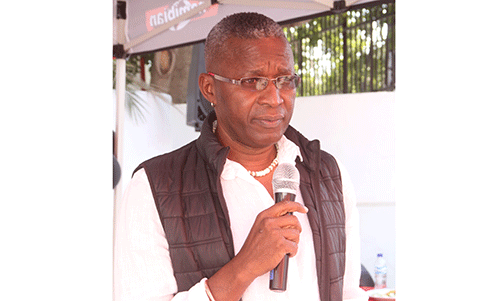Lahja Nashuuta
Media Ombudsman John Nakuta has blasted the local media for inadequate and poor coverage of the 2024 Presidential and National Assembly elections in November.
The recent Media Elections Monitoring report shows that media outlets were largely reactive, responding to invitations rather than proactively informing the public about election-related issues.
While the report highlights that there were no systemic media biases, it also emphasised that quality reporting is on the decline.
The report states that crucial topics such as gender and inclusivity, did not receive sufficient media attention.
During the report launch, the project’s lead consultant, Christie Keulder, stressed that one key finding was the lack of bias towards any political party.
The report noted a diverse range of election coverage themes and a high overall volume of media reports.
However, the report revealed that political parties failed to implement proactive media strategies and women’s issues were significantly under-represented in election coverage.
The report asserted that Namibian political parties are not communication-driven, relying mainly on event-based interactions with the media rather than developing consistent, strategic messaging plans.
“As a result, voters had little opportunity to learn about parties, policies and candidates. Small parties received more coverage than expected based on their support levels, primarily due to controversies and crisis events,” the report stated.
Political parties were criticised for their lack of effective communication skills and capacity.
Both reports indicate that Swapo received the most media coverage among all parties. However, the share of media attention devoted to Swapo, around 53% of total coverage, is lower than its 2019 election results.
This suggests that the coverage was not necessarily favourable to the party.
The report further indicates that the number of election-related statements issued from all parties increased.
However, the visibility of opposition presidential candidates remained low, with only a few statements featuring them.
-lnashuuta@gmail.com



